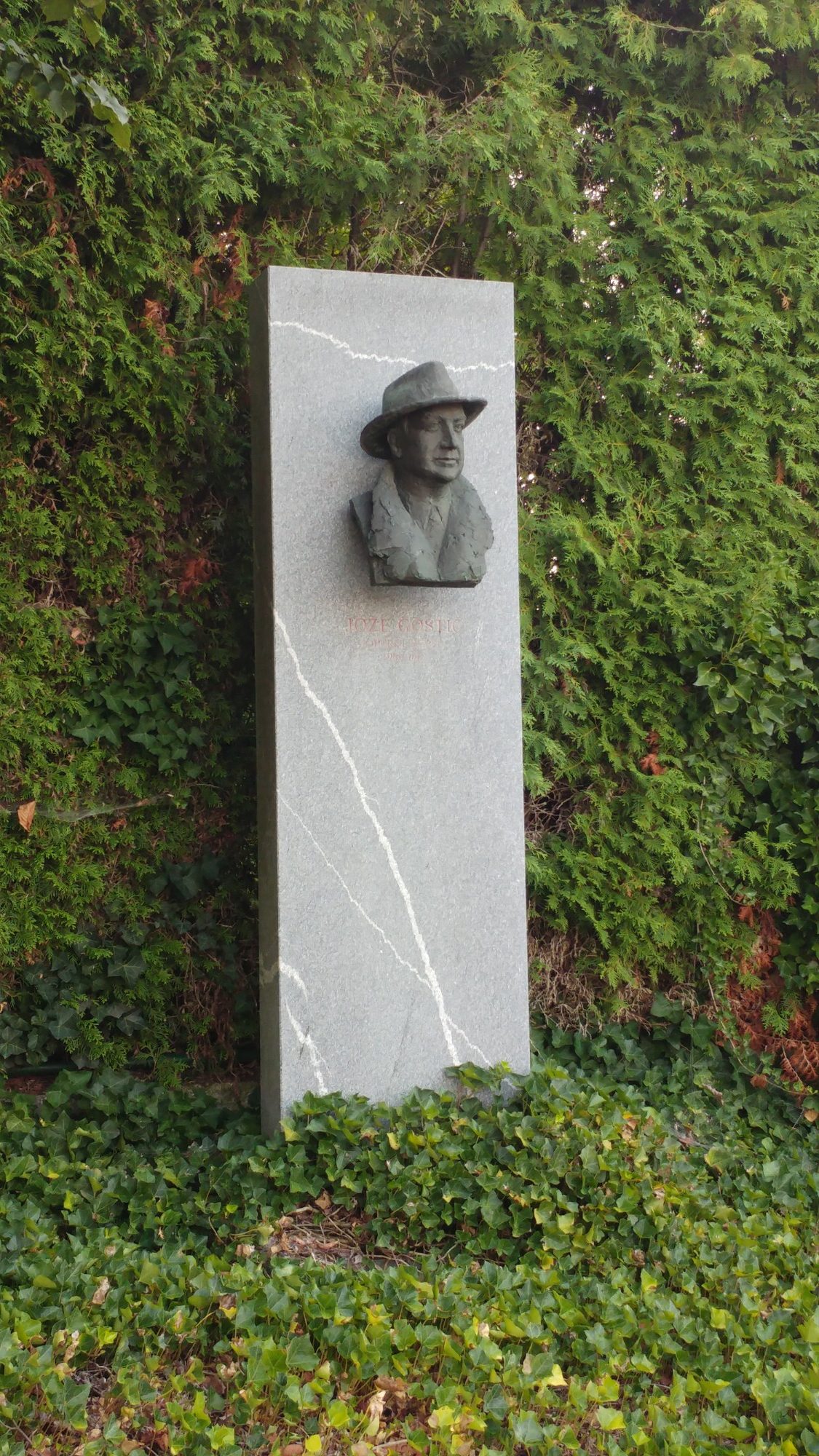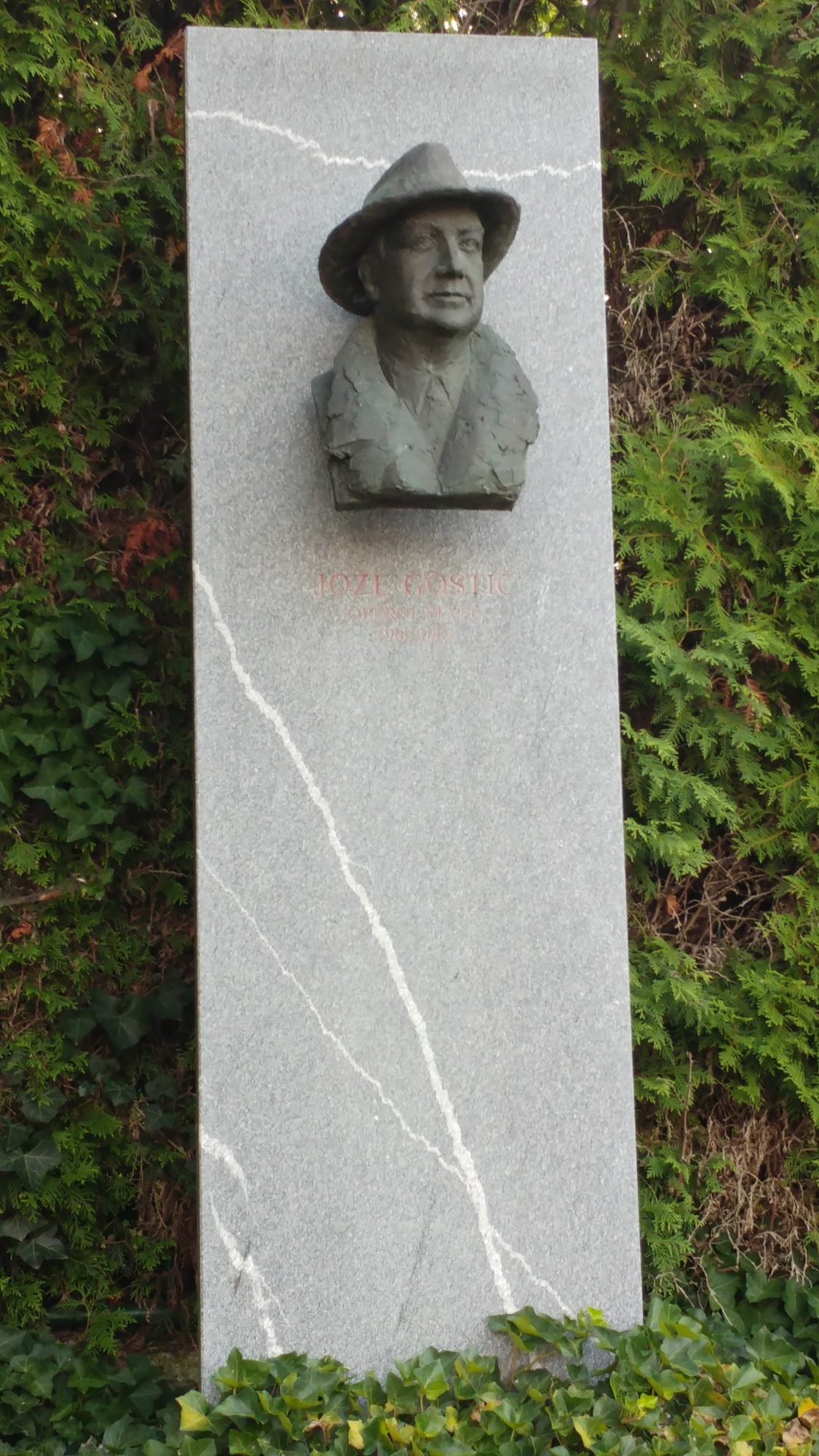In 2000, the townspeople of Homec erected a monument in honour of the great tenor Jože Gostič next to his birthplace. The memorial was made by sculptor Vesna Bukovec.
Jože Gostič
Jože Gostič (1900–1963) went down in the history of Slovenian music as a legendary tenor virtuoso. Carving out an international operatic career, Gostič achieved distinction for his unique interpretations of verismo, bel canto as well as Wagnerian roles.
Jože (or Josip) Gostič was born into a musical family with a tradition of organ playing. Attending performances at the Ljubljana Opera, and willing to brave an up to four-hour walk home to Homec after the show, young Gostič developed an avid interest in the art of opera. In 1921, he enrolled to study solo singing at the Ljubljana Conservatory, and earned his living as member of the operatic chorus. However, he encountered several obstacles during his schooling. Suspended briefly by military service, his academic achievement was marred by a poor grade in his final year. Rather than dampening his spirits, this encouraged him to delve into his musical pursuit, i.e. singing, with an even greater earnestness – an ardour reflected in his renditions of Wagnerian roles assigned to him by the principal of the Conservatory, Matej Hubad, as a challenge.
In 1929, he debuted as a soloist in the role of Lensky in Tchaikovsky’s Eugene Onegin, and then sang his second great role of the season, performing as Franjo in Foerster’s Gorenjski slavček (The Upper-Carniolan Nightingale). In the 1930s, when a lighter opera genre, the operetta, came back into vogue at the Ljubljana opera venue, and Gostič figured prominently in numerous productions, the critics claimed that his lyrical voice surpassed these roles, which served only to “impair” him.
Thereafter, the lyrical elements of his tenor voice found expression in the tragic role of Massenet’s Werther, and later, in his mature period, Gostič mastered profounder dimensions of dramatic tenor in the roles of Otello and Lohengrin. Marked by extraordinary versatility, his vocal abilities encompassed diverse vocal registers. He sang different characters, and was able to artfully adapt his voice to the specifics of a role. Playing the character of Rodolfo in La Bohème, Gostič sang his bel canto arias by progressing from the subdued mezzo voce to full chest tones and back, and interpreted Erik from Wagner’s The Flying Dutchman with dramatically charged delivery, employing broad heavy tones from the chest register.
In the Ljubljana Opera, Gostič performed most of the important tenor roles, and in 1937, after an eight-year span of regular engagement as a soloist in Ljubljana, moved to Zagreb, where he emerged as a prominent figure of the Zagreb Opera ensemble. He stayed loyal to the opera house of the Croatian National Theatre until his death, in 1963.
The highlights of Gostič’s artistic career include a role in the first production of The Love of Danae by Richard Strauss – a world premiere staged at the Salzburg Music Festival in 1952 – his verismo arias in Puccini’s Tosca performed at the Zagreb Music Biennial and, primarily, his interpretation of Verdi’s Otello.
Maia Juvanc


